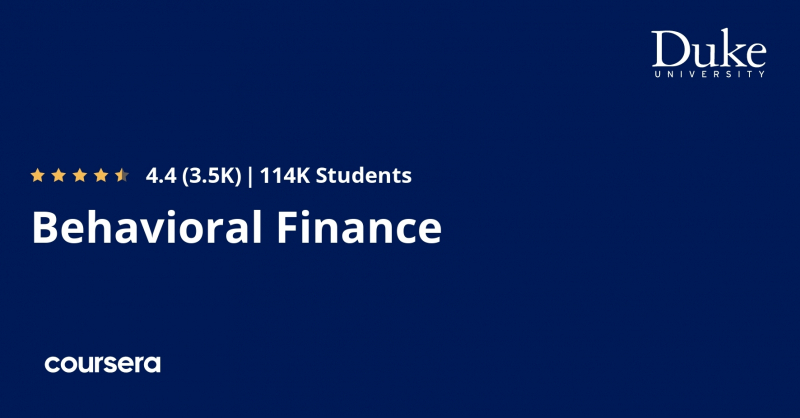Behavioral finance

Behavioral finance seeks to model the investor's psyche. It comes to counter the prevalent classical financial theory, which holds that investors behave systematically and rationally. Mental anchoring, loss aversion, ratio bias, confirmation bias, group impact. The importance of cognitive and emotional biases in investor decision-making has been illuminated by behavioral finance. A sunny Friday, for example, has a favorable impact on the market, whereas a rainy Monday is connected with a bear market: this is known as the weather effect.
There is also overconfidence, which leads investors to assume that they understand the market well enough to predict the most dramatic movements, which is not the case. So many irrational behaviors that explain excessive volatility, stock market crashes and other speculative bubbles on the financial markets. In this course, they examine these predictable errors, and discover where they are most susceptible to them. This course is intended to guide participants towards better financial choices. Learn how to improve your spending, saving, and investing decisions for the future.
What you will gain:
- Decision-Making
- Behavioral Finance
- Cognitive Bias
- Behavioral Economics
Time to Complete: 5 hours
Format: Self-paced, fully online
Google rating: 4.4/5.0
Enroll here: coursera.org/learn/duke-behavioral-finance










